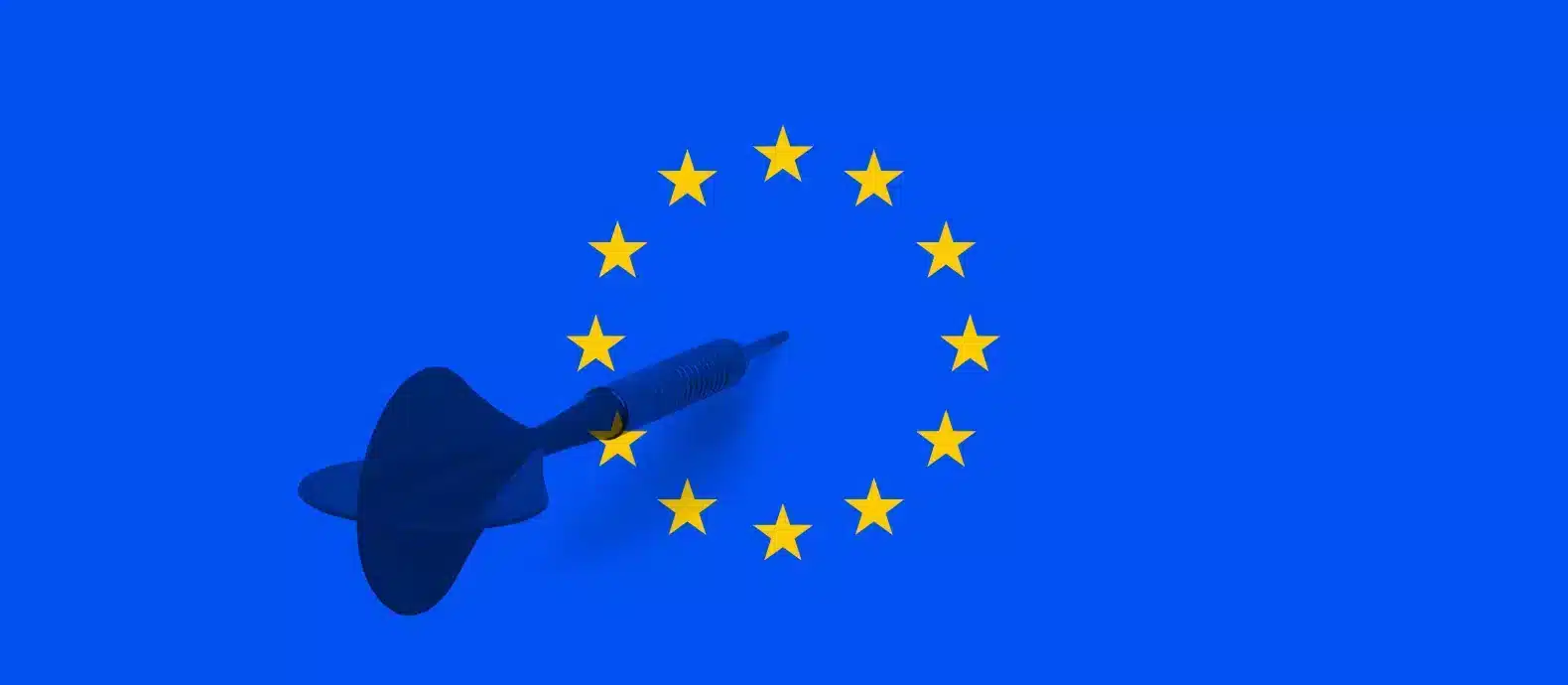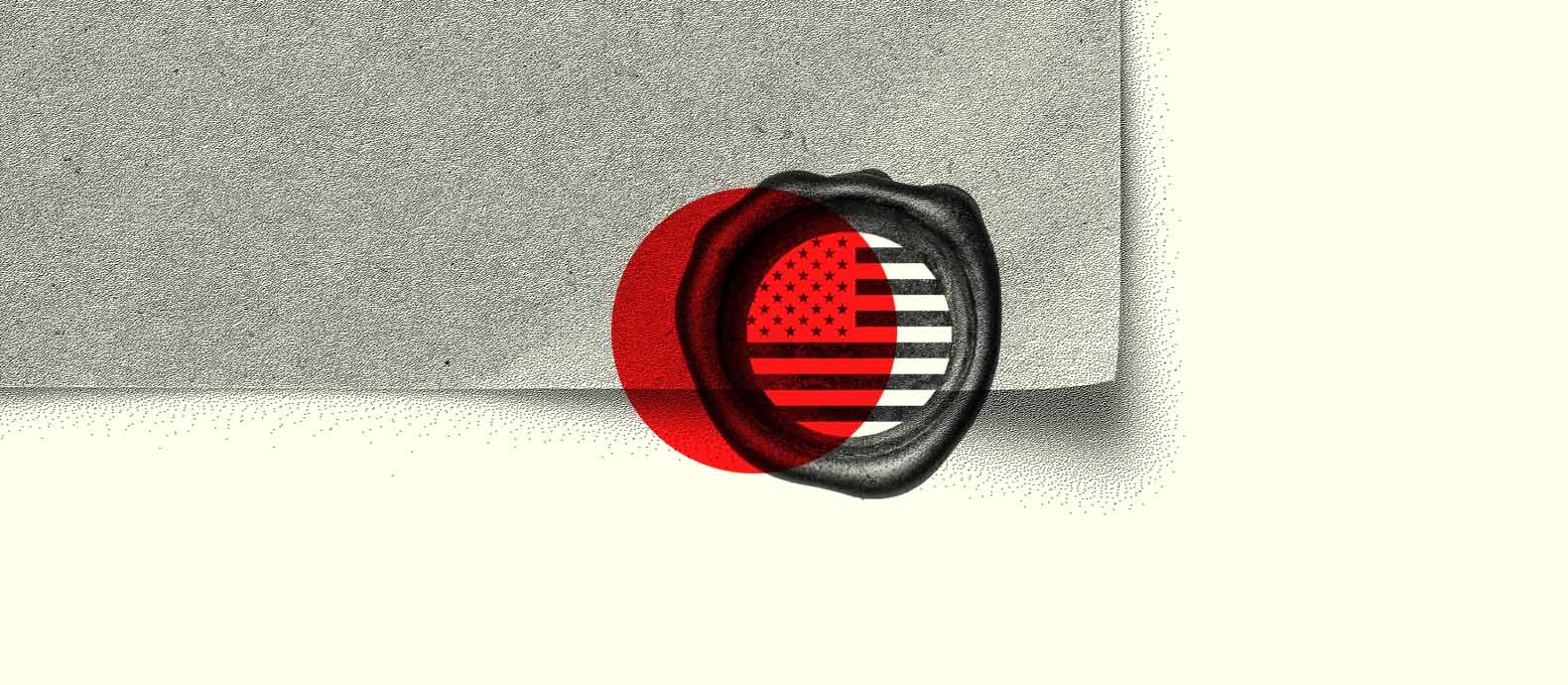The Digital Services Act (DSA) is a pivotal regulation by the European Union designed to regulate internet service providers and intermediaries. Effective from November 16, 2022, with full implementation of its transparency reporting measures on February 17, 2024, the DSA has a global reach, affecting service providers both within and outside the EU. The primary aim of this legislation is to ensure compliance with EU laws, but it also introduces new considerations for brands and platforms in terms of how they operate and interact with these regulations.
To provide clarity on this complex subject, we interviewed Mark Peters, an attorney at Grünecker. His expertise sheds light on the key aspects of the DSA and its potential impact on various digital entities. Through this discussion, brands and platforms can gain a better understanding of the DSA’s requirements and prepare themselves for the changes it brings to the digital landscape.

What’s the Digital Service Act?
The Digital Services Act is a regulation by the European Union which aims to achieve a level playing field for internet service providers, the so-called intermediary services. It shall make sure that these services comply with applicable law. Up to now, you have significant differences between service providers based in the European Union and those based outside the Union. While the ones within the union were rather compliant with applicable legislations, there was the impression that outside of the European Union, you were a bit in the Wild West. This had a negative impact not only on internet users and (IP) rights owners but also on costs and profitability for European intermediary services. And that is what this regulation wants to harmonize. So, everyone, regardless of where it’s situated, and who is targeting consumers in the European Union or providing services to them, will have to comply with applicable laws, and the DSA wants to make sure that this happens.
What’s the scope of the DSA?
While the DSA is comprehensive, it doesn’t cover every internet entity. It specifically targets intermediary services – a category encompassing entities that facilitate services or offers by others, such as internet access providers or web hosting companies, but also the well-known internet sales platforms such as eBay or Amazon (due to its marketplace) or social media such as Meta and YouTube.
Understanding the layers of the DSA
Intermediary Services: This includes internet access providers, domain registrars, content delivery networks, and others facilitating third-party services.
Hosting Services: A subsection of intermediary services, these are entities providing storage and internet access, like Dropbox or web hosting services.
Online Platforms: These are specific hosting services that also disseminate information, including Facebook, and YouTube, and also the platforms that arrange information for sales purposes, like eBay, Alibaba, etc.
VLOPs: Refers to Large Online Platforms. We have so far 19 of these designated by the European Commission which requires a certain high number of monthly unique users like Amazon, Facebook, Booking.com, and Zalando to name a few.
VLOSEs: This means Very Large Online Search Engines like Google and Bing. Why aren’t they a VLOP? Because they’re not intermediaries. They collect and create the search results on their own which is not third-party user-generated content. But because of this designation, they’re in the act’s scope.
How do I know if I need to be compliant with the DSA?
It is important for anyone with an online presence or offering services online to determine if they fall under the act. First, you must determine if you qualify as an intermediary and assess which group you fall into based on your services. For instance, if you have a sales shop and allow users to rate products, you are likely not a platform because it is an ancillary service. On the other hand, if you have a blog or discussion group on your sales platform that allows users to comment, this might be considered a platform depending on its size. The same goes for selling software that enables users to share digital works created with the software.
What are the key obligations imposed by the act?
Liability:
If a host provider or a platform receives a notice of an obvious infringement, it is responsible for taking action. For example, if a web hoster that is hosting an online shop for a seller receives a notice that a product sold within that online shop infringes on a trademark, it must make sure that the seller removes the infringing offer. This applies to platforms as well. If a platform, like Alibaba, is notified of infringing content or offers and doesn’t take action, it can be held liable. This has been established by the Court of Justice of the European Union and has not been changed by the DSA.
Transparency, data reporting, and further obligations:
What has been changed is much more on the procedural side. Now, based on the DSA, platforms have to report all the notifications they receive, and all measures they take.
Source: DSA Transparency Database
Since September, we have over 14 billion so-called statements reported only by the 16 VLOPs. The current rate is about 3 million measures reported per hour. So, you see what’s happening now. On the DSA Transparency Database, you can research for example the number of measures taken by a specific platform based on IP infringements. Platforms also have to publish further reports about their actions. It is amazing to see what’s already going on under the DSA.
There are also a number of further new obligations that were previously unknown
While previously advertisements had to be marked as such, now also the person responsible and the person who paid for the advertisement have to be identified, as well as the general parameters used for targeting recipients. Moreover, platforms will have to explain their recommender systems. This means sellers should be able to see why their competitor’s products are ranked above them.
Terms and conditions updates:
All intermediaries need to review their terms and conditions to ensure compliance with the DSA. They shall provide a clear explanation of available reporting channels for notifications and the criteria they apply, whether a review is done manually or with the help of AI. Additionally, it is crucial to consider the rights of users affected by enforcement measures. Measures may not be arbitrary, they must be based on a balanced and reasoned decision. This applies not just to content and sales platforms like Facebook or eBay, but to all intermediaries.
Internal complaint-handling system and out-of-court dispute settlement for all Online Platforms
Platforms need to provide an easily accessible complaint-handling system for all recipients of their service, i.e. for users affected by measures and for entities that have submitted a notice. The system must allow for substantiated complaints to be filed and all complaints have to be handled in a timely, non-discriminatory, diligent, and non-arbitrary manner. Finally, all recipients have access to an out-of-court settlement procedure with the aim to resolve the dispute and platforms have to participate in this procedure.
KYBC Obligations for Sales Platforms:
All sales platforms have to verify the identity of commercial sellers. Simply requesting a name and address won’t be enough anymore. Sellers will need to provide an ID or a company registration document. The platforms will also have to make sure that the provided information is reliable and accurate, and they cannot accept fake IDs or registrations. This applies to all future sellers. Additionally, all existing sellers will have to undergo a verification process within one year after February 17. If they fail to do so, they will have to be suspended. These measures are expected to provide more reliable information and better enforcement for all users.
Compliance by Design and further obligations for sales platforms:
Sales platforms must design their online interfaces to allow sellers to comply with obligations regarding pre-contractual information, compliance, and product safety information.
Moreover, platforms will have to conduct checks in official databases whether products or services offered have been identified as illegal.
Finally, sales platforms must notify all consumers who have purchased a product or service within the last six months if they become aware that the product is infringing or illegal.
How is the DSA going to impact brands?
Notice and takedown procedures:
The Digital Services Act (DSA) provides a clear structure for reporting infringements on online platforms. In the past, it was often unclear where to send infringement notices, so reports even to the press department or the CEO’s office were not unknown. The DSA now requires online platforms to identify clear channels on their respective websites and provide online forms that allow users to submit not only predefined texts but also detailed explanations and attachments to substantiate their reports.
When reporting infringement, it’s essential to be precise. Instead of merely asserting that a product is infringing, you need to provide the specific URL and your name and address. You also need to state that you’re acting in good faith and believe that the infringement has occurred. The notice must be so precise that the platform operator can easily identify the infringement without extensive research. This is an established principle in the Court of Justice of the European Union (CJEU) case law, which the DSA now codifies.
Platforms must respond to infringement notices in a timely, diligent, and non-arbitrary manner. They should ideally respond within a week, but if they take longer, they must explain this. It’s also important that they explain their decisions to the affected parties. For example, if they take down an offer due to trademark infringement, the seller must be informed about that.
Complaint handling procedure:
A formal complaint handling system is required for all platforms. If you disagree with a decision made by the platform, such as removal of your content or rejection of a notification, you must have the ability to file a complaint against this decision. The final decision should be made by humans and not just AI. In case a decision is deemed incorrect, the platform should reverse it, either by reinstating content or taking it down.
Out-of-court dispute settlement procedure:
All platforms must participate in an external dispute settlement process, which will be designated by the competent Digital Service Coordinator. Disputes between platform and rights owners or users affected by a measure will be arbitrated by specific bodies. Platforms have to participate in the settlement procedure. The platform must also bear the costs of the settlement procedure, regardless of its outcome. If the complainant is successful, they can claim for a reimbursement of costs from the platform. It is difficult to predict the impact of this tool, but it is important to monitor how it develops in the coming years.
Additional tip:
It’s a good idea to provide your resellers with a package of information to help them when promoting your offer online. This package should include detailed instructions on what information they need to provide, as not all of them will have the necessary information to fulfill their responsibilities.
What’s the role of a Trusted Flagger and why is it important?
Trusted flaggers will play a crucial role in the DSA ecosystem. Notices submitted by these flaggers, who act within their areas of expertise, will be given priority and processed quickly. This system is particularly relevant in the fight against counterfeit goods, providing a faster and more efficient mechanism for flagging and removing such items.
When dealing with 14 billion measures, platforms will have to rely on high-quality notifications filed by trusted entities to be able to deal with this flood of reports and still be able to react promptly as required under the DSA.
Who will be designated as trusted flaggers? Consumer protection agencies, as well as professional service providers, may be designated as trusted flaggers by the respective Digital Service Coordinators. However, different countries may have different approaches in the beginning. For trusted flaggers’ their reputation as reliable sources is crucial, and platforms will in general comply with their requests. Trusted flaggers can also lose their status if they fail to provide justified notifications. This should ensure the high quality of their notifications. In practice, I assume that a large proportion of notifications will likely come from trusted flaggers.
As the DSA is rolled out, what can we expect?
The Digital Services Act (DSA) has been in effect for VLOPs and VLOSEs since August 25th, 2023, and for everyone else since February 17th, 2024. The DSA Transparency Database filling process started on September 25th, 2023. You may have noticed quite a few amendments to terms and conditions during the past months, as well as design changes on the major platforms. I believe that more of this is to come, as there is an ongoing learning process for intermediaries in general and specifically for the platforms.
Notification channels will be more visible, moving up to provide better visibility to users. The notification forms will also allow for more substantiated reports than what is currently possible. Large platforms like the Alibaba Group have already launched their new IP reporting portal platform. However, medium and large platforms may need to catch up.
Enforcement will be similar to what we saw with GDPR. Initially, I would assume that the authorities will be rather patient, but for entities not deemed to be good actors or which deliberately ignore the obligations, enforcement can start very quickly. Digital Service Coordinators, which are public bodies appointed by every state, have been granted significant powers. They can give orders to platforms to take down specific content, audit platforms, and impose fines of up to 6% of global turnover. This is higher than fines under the GDPR.
It is important to note that the Digital Service Coordinators are new, they have no role models to rely on and they will have to learn. There may even be incorrect decisions made in the beginning, which might be overturned later by the courts. Still, in the medium term, I believe that they will have a significant impact, similar to the Data Protection Authorities.
Overall, while the DSA will not provide a miracle cure for all legal issues concerning intermediaries/online platforms, it will make the online world safer for internet users and also for brands. The new obligations and procedural requirements should make it easier for Brands to enforce their IP rights.
However, as many of the tools created by the DSA are new it will be necessary to monitor how they develop and what effect they will have in practice. Interesting times are ahead certainly for the platforms, but also for brands trying to enforce their IP rights.






